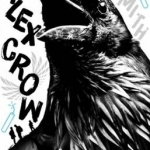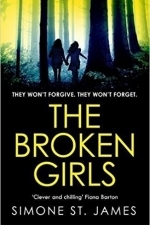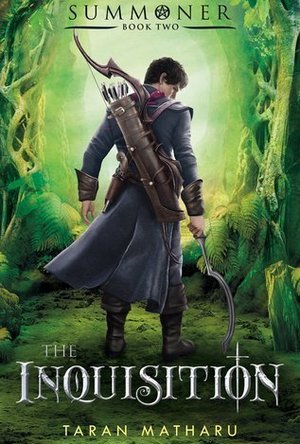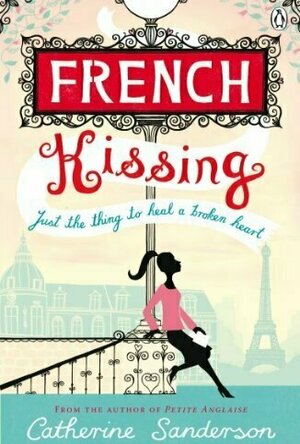Whatchareadin (174 KP) rated The Broken Girls in Books
Apr 9, 2019
A young girl who is a student at Idlewild Hall goes missing. Idlewild is a school for wayward girls. The authorities believe she has just run away with some boy, but her friends and roommates know this is the farthest thing from the truth.
Barrons, Vermont -- 1994
Deb Sheridan another young woman is found dead in the field at Idlewild Hall, which has now been closed for many years. Her killer is her boyfriend at the time, Tim Christopher. Why would he leave her at this place?
Barrons, Vermont -- 2014
Someone has bought Idlewild Hall and plans to renovate it. But why? The place is nothing but a money pit. Fiona Sheridan is determined to find out who is buying the property and their motivation behind it. Will she be able to deal with all the secrets this place holds? When a body is found during the renovations, Fiona's attempts go into overdrive? Will she be able to find out who is behind this before she too becomes a subject of Idlewild?
Thank you to NetGalley and Berkley for the opportunity to read and review this book.
Going through this book, I was a little skeptical about what was going to happen. I'm not a big fan of books with ghosts, but this one wasn't too bad. I gave the book a rating of 3.5 stars. While the book was interesting, I found myself going for other things to do besides reading this book. The story flowed naturally even switching from the past to modern day.
Mary Hand is a ghost that haunts the grounds of Idlewild. She will show you things that you may not want to see. But is a ghost behind all the strange things that happen at Idlewild Hall or is there another culprit. We know for sure that Deb Sheridan was killed by her boyfriend, but what about the body found during the renovations? In 1950 the school was full of wayward girls. Girls who in those days, parents could not be bothered by and mental health was a taboo issue. So they sent their daughters away to school. Four girls in room 3C became very close friends. Sonia, Katie, CeCe and Roberta. The book tells their story from 1950 leading up to the disappearance of one of them and Fiona's perspective from 2014, trying to find out the history of Idlewild Hall and the new owners.
Overall, for me the book was good, not great. This is the first book I have read by Simone St. James. If her other books deal with ghosts and spirits, I'm not sure if I will read them or not, but I may give them a chance.
If you like ghosts though, I think you should give this book a try, YOU may enjoy it.

InoDeals daily deals/coupon/shopping
Shopping and Lifestyle
App
Are you paying retail? Do you have multiple deal, coupon, discount, Black Friday, Cyber Monday apps?...

The Alex Crow
Book
From the critically acclaimed author of cult teen novel Grasshopper Jungle, Andrew Smith, comes a...

Bible from eBible.com with NIV NKJV KJV ESV NLT Amplified Message Chinese Spanish
Reference and Book
App
Super fast search and navigation. NIV, NKJV, KJV, ESV, NLT, Amplified, The Message and more. Get...
Debbiereadsbook (1659 KP) rated Lost in Indigo (Colors of Love #1) in Books
Mar 7, 2019
Faced with the end of his hockey career, Mathieu goes home to heal. His long time friend brings his 20 year old son to help Matt around. But Matt is not prepared fro how he feels about Indigo, especially as he has managed to keep his sexuality a secret. But Indigo is a unique young man, genderflux, out and proud. Can Matt recover enough to play again, can he and Indigo be happy in secret?
Ordinarily, I would say here that I wanted to hear from both main characters. Indigo does not have a voice here, and ORDINARILY that would be a major gripe of mine.
BUT!!
I actually rather enjoyed this, with only Matt having a say! I made a new shelf for it and everything!
Matt is deep in the closet, he knows it, and up to now, has just made do. Breaking his leg, and going back to Canada and meeting the now grown up Indigo again makes Matt question a lot of things. And as time goes on, he realises that maybe being in the closet is not a good thing, especially when he wants Indigo in his life, and Indigo wants to be in that life, but Indigo will NOT be a dirty secret.
I loved that Matt has a dawning revelation about Indigo. His feelings grow, over time, but Indigo was all in, right from the start! Loved that his NEIGHBOUR, of all people, had Matt sussed, right from way back when they first met, but his AGENT, who knew him so much longer, had not a clue! I loved that Indigo's dad, Matt long time friend, was, while not totally against Matt and Indigo being together, he was "don't hurt my boy, or I'll break the other leg" on Matt. Papa Bear at his very best!
I loved that, when called on it, Indigo gives Matt a deadline, and Matt delivers! Loved the way he does that!
I read another series by this author, The Point Shot trilogy, and I said in that review, that I loved it because it was single person point of view, so Ms Vocey has a way of negating my dislike of single person points of view, with strong minded, loud voiced characters! I need MORE of this author, I really do!
There are a few pages of hockey commentary, I skipped those, I'm not any kinds of sports fan, at all, but I didn't feel I missed anything by doing so. Just don't hate me!
5 full and shiny stars
**same worded review will appear elsewhere**

Why Britain Hates Men: Exposing Feminism
Book
PLEASE NOTE: The content of this book is virtually identical to the content of 'Exposing Feminism',...
Kaysee Hood (83 KP) rated The Inquisition (Summoner, Book 2) in Books
May 1, 2018
Despite the fact Fletcher was in imprisonment for a year he is game to accept a new mission that will aid Hominum in the war with the Orcs. He’s even willing to accept the challenge that comes with it to prove Elves and Dwarfs can work together in the hopes it will fix the strain on the Dwarven and Elven ties with Humans due to events that took place while he is in the hole. Results he does not doubt the Triumvirate had their hands in. All Fletcher and his friends have to do is go into Orc lands with three other teams to put an end to a Goblin breed.
It can never be easy for Fletcher.
Now, that’s all I really want to cover as important points in [i]The Inquisition[/i] because it should pull you in if my next words do not. To circle back I enjoyed the second book far more than [i]The Novice[/i] yet found a new appreciation for the first book as I realize now all the set up there is the reason the second summoner book is successful and was able to focus on the race issue a bit more
To circle back, my enjoyment of the second summoner book is due to the writing by Matharu because of how he set up [i]The Novice[/i] and there is more appreciation to be had for the first book of the series because it is after the second I realized how much had been done for [i]The Inquisition[/i] to be successful. It is within the first summoner book we’re introduced to key characters, plots (minor and major), lives of the characters, and the issues which will drive Fletcher in the second. If anything, [i]The Novice[/i] was an thick introduction to the events to come in [i]The Inquisition[/i]. So I would say be mindful if you’re thinking to begin the series of what occurs and how it will relate later.
However I want to say the character growth is still alive, for better or worse. We’re even given new characters and demons to grow fond of, or hate. Somehow 350+ pages were not enough and yet were perfect to convey where we needed to go then set up the points for the third book. And I have to say there are some twists in here I did not catch, which is nice for someone who had read so much and can predict so much to come. Even though there is some betrayal to me it was worth it as due to Fletcher’s nature we’re able to gain perspective from another race no one has probably given much thought to.
So, if you have yet to get into the Summoner Books then I suggest you go if you’re for fantasy and magic. If you’ve yet to pick up [i]The Inquisition[/i] then I have to say I have no clue what you are doing because I’m peeved at myself for not getting to it sooner. Honestly, it’s a good series to get lost in and yet think about real world issues we have today even if they’re painted a little bit different.

Language Therapy 4-in-1
Medical and Education
App
Harness the power of a scientifically proven 4-in-1 speech therapy app that boosts reading, writing,...
graveyardgremlin (7194 KP) rated Vixen (Flappers, #1) in Books
Feb 15, 2019
<b><i>Once upon a time there were three beautiful girls who went to the best schools (and speakeasies), and they were each assigned booze and clothes that are the cat's meow. But the flapper lifestyle took them into different directions and now they work to find out who they are and what makes them truly happy. My name is Vixen.</i></b>
And so you've been introduced to the first installment of The Flappers series Charlie's Angels' style (the best I was able to come up with anyway).
<b>Meet our <s>Angels</s> Vixens:</b>
<u><i>Gloria</i></u> - She's the one who has it all: <i>the</i> name, riches, looks, clothes, a handsome fiancee, everything comes easily to her, and everybody seemingly loves her. But this poor little rich girl isn't so happy after all and so she begins to rebel.
<u><i>Clara</i></u> - Burned by her former flapper lifestyle, she's now trying to start over as "Country Clara" without her sordid past coming to light. So has she turned into a goody-two shoes or is it just part of a grander scheme? Only time will tell.
<u><i>Lorraine</i></u> - Jealous of best friend, Gloria, she's desperate to step out of Glo's shadow to become the center of attention as an individual.
<b>Before getting to my review, there are a few questions that should be addressed:</b>
Is this great literature? <i>No.</i>
Will this book change your life? <i>No.</i>
Will you learn anything from reading this book? <i>No. Well, maybe some twenties' slang.</i>
Is this book accurate to the period? <i>No, there are some liberties, but it's good enough as wallpaper to the players and scenes.</i>
Is this book entertaining beyond belief? <i>A resounding YES!</i>
VIXEN is very easy to read and captured my attention from the first page, and while it may not be the best book ever, I had a lot of fun reading it. While there's nothing glaringly obvious anachronism-wise, I did question some word choices, phrases, and actions, but overall they were easy to overlook and I likened it to watching A Knight's Tale starring Heath Ledger. Written in third-person, each chapter focuses on one the three girls' point-of-view, starting with Gloria and continuing with Clara and then Lorraine, throughout the book until the end.
As for the characters, Clara (named after Ms. Clara Bow?) was definitely my favorite to read about, she's recovering from the aftereffects of her life in New York City (which includes a boy, of course), and is trying her best to leave the past behind and move on with her life. Her story had a lot to offer and she felt like a real person who had made mistakes and was now left dealing with the repercussions. Lorraine was a trainwreck you can't take your eyes off of, and while I can't say I liked her, I felt sorry for her. She tries way too hard to stand out and ends up making herself look pathetic; if she keeps it up she'll turn into a very ugly person whom everyone hates. Forget Gloria, Lorraine is the "real" poor little rich girl of the book. She's in the middle of making all the wrong decisions and we're along for the journey, which made her multidimensional and interesting to read about as well. Gloria was my least favorite, mainly because I don't think the author knew quite how to write her. At one moment Gloria seemed like a good girl rebelling, but then there would be moments where she was a real bitch and those two aspects just didn't gel into a cohesive whole. Now if she was seemingly sweet on the outside and really was a conniving bitch underneath, then I'd be on board or at least would get it. But she wasn't that type of bitch and she wasn't Alexis Carrington-bitchy (or insert less-dated reference here) either. How she was written made her look more like Sybil and didn't render me to sympathize with her at all. It didn't help that I felt she was too close to a Mary-Sue for my liking. I don't like perfect or near-perfect characters, they're boring and so was she. What was her motivation for anything, such as singing? Was that always a dream or did it just now come about? Is her recent behavior only happening because she's unhappy? Sorry, but there's just not enough there to make me care about this character. Gloria needed to be more fleshed out to make her feel like a real human, with real thoughts in her head and real feelings, and not a cliched cardboard cut-out.
The love aspects of the novel were fairly glossed over, mainly Gloria and Jerome's story, and felt more like teenage hormones than actual real love.
<i>"I don't know you but you're hot and I love you."
"Nothing will keep us apart!"
"We'll be together forever!"</i>
Which is too bad because I like the idea of an interracial romance taking place in the 1920's, it could have been fantastic, but instead was tepid and generally unromantic. It didn't help that half the duo was boring old Gloria and the other half never developed beyond the fact that he's a black musician who's forbidden to her due to the color of his skin. I wished for more impact and still hope for that in the next installment of the series. Clara's budding relationship with Marcus was far more realistic because they actually had conversations *gasp* and was well-paced. The relationships between the girls were touch and go, sometimes they felt authentic, then at other times interactions appeared too advanced to where the relationship had last left off; it was like there were scenes edited out in chunks. The same could be said of the developing romance between Gloria and Jerome.
So a few things bothered me in the book, such as the issue I had with every girl who wasn't one of the main trio being cattily described, i.e. eyes are close together, that color makes her look sallow, etc. Can we get over doing that already? That's not encouraging good behavior. A little more positivity would be a refreshing change. Another thing that annoyed me was at one point, the crap hit the fan and *minor spoiler* <spoiler>Gloria's career as a torch singer, which she's naturally perfect at (of course), came out into the open. So who does she immediately blame? Her best friend, Lorraine of course, whom she slaps! And who to this point Gloria had no provocation to even think it'd be her who had spilled the beans. Lorraine had not done anything to deserve Gloria's wrath, or at least nothing she knew about yet, so I don't know if the author had forgotten that fact or what. It did not make any kind of sense because there were other people who knew what Gloria was up to and others who could have easily found out. To me it was sloppy writing. What kind of friend does that make Gloria anyway? Not one I'd like, who always thinks the worst of her best friend without any miniscule proof of guilt. Told ya she was a bitch</spoiler>. There were some minor editing inaccuracies, such as when Gloria's dress goes from gold sequined to red in less than a page (pages 74-5) but nothing too overt to jar me out of the book altogether. Lastly, perhaps there was a bit too much twenties' slang that wasn't always incorporated into the text as smoothly as possible.
Overall, the plots were well-done and moved along at a brisk enough pace that I never got bored. The ending unfolded so that it tied up the multiple plotlines while still keeping plenty of loose ends for the sequel. So, a lot of the book is superficial, in some cases there are caricatures instead of characters, and it is a shallow interpretation of the Roaring Twenties, I don't care, the book is just plain fun and sometimes that's all I need. And while I can't say I loved this book and it totally lived up to its beautiful cover (seriously that dress is gorgeous, though I could do without the pit shot), I was suitably entertained and will read the sequels to find out what happens next, while I keep up the hope that Gloria will turn into a real, live girl.
Ivana A. | Diary of Difference (1171 KP) rated French Kissing in Books
Aug 3, 2020
<a href="https://diaryofdifference.com/">Blog</a>; | <a href="https://www.facebook.com/diaryofdifference/">Facebook</a>; | <a href="https://twitter.com/DiaryDifference">Twitter</a>; | <a href="https://www.instagram.com/diaryofdifference/">Instagram</a>; | <a href="https://www.pinterest.co.uk/diaryofdifference/pins/">Pinterest</a>;
<img src="https://diaryofdifference.com/wp-content/uploads/2020/07/Book-Review-Banner-65.png"/>;
<b><i>"French Kissing" by Catherine Sanderson is one of those romance novels you enjoy for a few days and then forget how it ended. </i></b>
<b>Synopsis:</b>
Sally Marshall decided to try a French online dating site. This was after she leaves her long-term boyfriend and Lila's father when she discovers he was cheating on her. With his secretary. After six months of healing, Sally is now ready to find her perfect match.
However, online dating has its downside. Meeting weird and creepy men, having one-night stands and being judged that she is a mother. Sally has to go through self-discovery in her journey to happiness.
<b>My Thoughts:</b>
"French Kissing" was average. It is very well written, but it follows a plot that, to me, has been overused by many writers, especially in the romance genre. It becomes another drop of water in the sea.
Sally is a very normal character and easy to love. She is struggling with the online dating. She believes she is at a disadvantage due to being a mother and her journey will teach her that she just hasn't met the right person yet. I am not a mother, and I don't know how Sally must truly feel, but I can imagine this situation being a big burden to her. Also, considering how men behave in today's world, where they want as little responsibility as possible and they are very reluctant to date women that already have children - I can understand how difficult this is for Sally. On the same aspect, this means that this is not Sally's fault. There is always someone out there that will be able to love her just the way she is - daughter included.
I liked the fact that this book was set in France. It gave a nice charm to it. However, on many occasions, there are French sentences with no explanation nor translation. If you don't understand French, you should buy a dictionary when you are buying this book. I can imagine this being an issue for many readers.
To conclude - it was an okay read. It will fill up your time nicely and bring you on an adventure of self-discovery. Perhaps you will also be able to connect with Sally on a whole new level. I wouldn't say "French Kissing" is a favorite, nor would I recommend it on the spot if someone asked me. However, if you love romances set in France with a focus on online dating - this might be worth your time.




